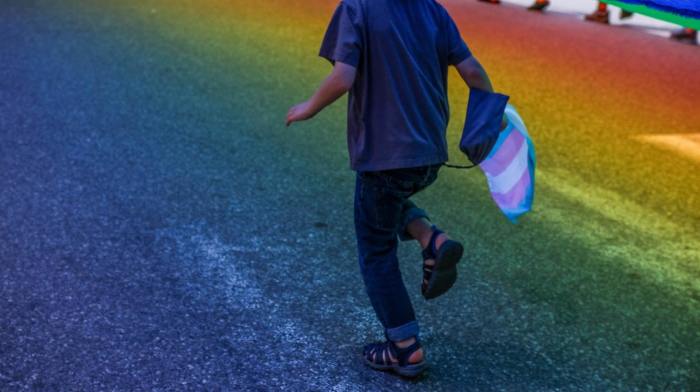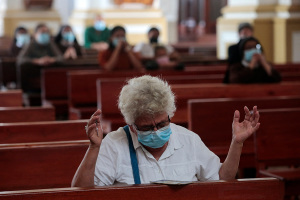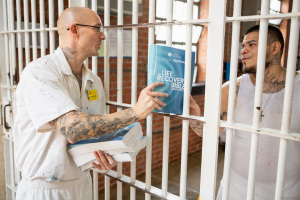Minn. school district can't ban trans students from entering opposite-sex locker rooms: appeals court

A school district in Minnesota must allow trans-identified students to use bathrooms and locker rooms consistent with their gender identity, a Minnesota appeals court ruled Monday.
The Minnesota Court of Appeals ruled in favor of the parents of a biological female high school student who identifies as a boy. The family sued the Anoka-Hennepin School District in 2019 and alleged that the student (identified in legal documents as N.H.) was required to use a separate locker room when she participated on the boys' swim team.
The court ruled that locker room segregation based on sex is a violation of the Minnesota Human Rights Act, which bars discrimination based on sexual orientation and gender identity, among other identifiers, including race and religion. Thus, the female student will be allowed to enter the boys' locker rooms and showers.
“N.H. identifies as male, has socially transitioned to male, and lives as male. Others also identify [her] as male and treat [her] as male,” Judge Peter Reyes, who was appointed by Democratic Gov. Mark Dayton in 2014, stated in the majority opinion.
“Based on this record, we conclude that N.H. is similarly situated to [her] peers because [she], like [her] peers, sought to use a locker room that corresponded with [her] gender identity.”
The school district had argued that a district court erred when it denied its motion to dismiss the lawsuit. However, the court upheld the lower court’s ruling.
“A transgender high-school student who is denied use of a locker room that is available to students of the gender with which the student identifies and to which the student has socially transitioned states a claim upon which relief can be granted of sexual-orientation discrimination,” the ruling states.
The majority opinion added that “students should not be required to ‘shop’ among schools and districts to obtain a discrimination-free education.”
In dissent, Judge Matthew Johnson, who was appointed in 2008 by Republican Tim Pawlenty, contended that the school district’s argument is “consistent with this court’s case law.”
“This court has held that men and women are not similarly situated for purposes of an equal-protection claim if governmental action legitimately depends on differences in their respective anatomies,” he wrote, adding that N.H. was not “‘similarly situated in all relevant respects’ in comparison to the cisgender boys in [her] gym class.”
Anoka-Hennepin Schools spokesperson Jim Skelly said in a statement shared by The Associated Press that the district will review the decision and weigh its options on whether to move forward with its appeal.
“The district’s top priority is maintaining a learning environment that is safe, secure, and free from discrimination, and its decision will be guided by those values,” Skelly stressed.
The Minnesota Department of Human Rights, which intervened in the lawsuit against the school district, praised the ruling.
“This decision means that schools are now safer and more welcoming for transgender and gender nonconforming students across Minnesota,” Human Rights Commissioner Irina Vaynerman said in a statement. “Our state was the first in the nation to prohibit gender identity discrimination. Today’s decision honors that legacy and continues to build a more equitable and inclusive Minnesota.”
According to legal documents, N.H. used the boys' locker room without issue after she joined the boys’ swim team at Coon Rapids High School during the 2015-2016 school year. But the next year, the district required her to use a separate locker room and threatened discipline if she did not.
“I never want any student to experience the discrimination and cruelty I experienced from the adults at my school," N.H. said in a statement released by the American Civil Liberties Union of Minnesota. "It means a lot to see that courts protect transgender students like me. Today's decision makes it very clear that segregating trans students doesn't just dehumanize us, it violates our legal rights."
Several legal battles nationwide have been fought in relation to school bathroom and locker room policies.
While some argue that preventing trans-identified students from accessing facilities that correspond to their preferred gender identity is discriminatory, critics contend that such trans-inclusive policies infringe on the privacy rights of other students who might not feel comfortable undressing around a member of the opposite sex.
Last month, the U.S. 4th Circuit Court of Appeals ruled in favor of a trans-identified high school student in Virginia who has been at the center of a lengthy legal battle that was remanded back to the lower courts by the U.S. Supreme Court in 2017.




























